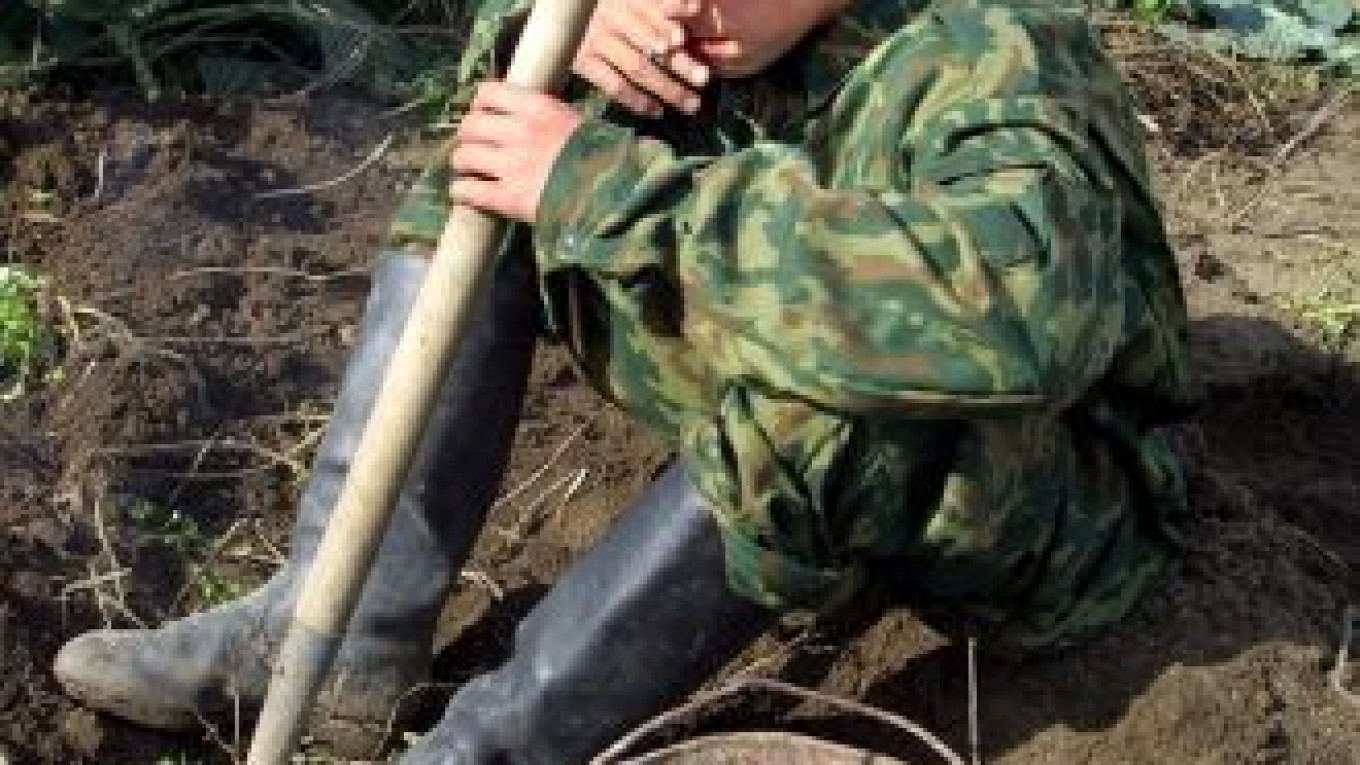The government and private investors will spend 300 billion rubles ($9 billion) to increase the investment potential of rural areas and make them attractive to young professionals, but experts said the new state program was too small to even begin to reverse the decline of the Russian countryside.
"This program is a signal to the rural communities that they shouldn't count on the government," Pavel Grudinin, deputy chairman of the agricultural committee at the Chamber of Industry and Commerce, said at a press conference Tuesday. "The most important thing for officials is to hold sports competitions and various summits, while the farmer remains without money and support."
The federal program, which Prime Minister Dmitry Medvedev approved on July 10, plans for the development of rural territories up to 2020.
The government has projected 300 billion rubles for the program, of which 90 billion rubles will come from the federal budget, 150 billion rubles from the regions and municipalities and another 50 billion rubles from private sources, said Dmitry Toropov, head of the rural development department at the Agriculture Ministry.
This money will be used to provide 42,000 young families with housing, to build schools and medical centers, as well as to connect villages to gas and water supply networks.
But experts questioned whether the program's budget would be enough to help the countryside. About 30 percent of Russians currently live in villages, so the 90 billion rubles the federal government plans to direct for the task is a minuscule contribution, Grudinin said.
"There was dissatisfaction among the regions that the federal budget won't cover all the financing," Toropov said. "We agreed with this, and so we decided to concentrate all the resources and invest them more effectively into those rural communities where investment projects are implemented and will continue to be developed."
Much of the program's money will be given out as grants to regions whose proposals have more investment potential, he said.
But the problem here is that many regional authorities do not have enough money to match federal funding, said Darya Snitko, an analyst at the Center for Economic Forecasts.
Several regions recently rejected 5 billion rubles of federal agricultural financing because they did not have money for co-funding.
Even if the program's milestones are reached, villagers would still be far from enjoying the same level of comforts as city residents. Grudinin said that from the start the program only aims to help raise villagers' incomes to 50 percent of those in the cities.
Anatoly Upadyshev, a member of the public council at the Agriculture Ministry, agreed that these results would not help to keep young people and professionals in the villages.
"Unless the government reaches out to the countryside, in five to 10 years only old ladies will remain there," Upadyshev said. "If there are no schools, no post office, no Sberbank office or normal road, young people will simply leave."
Contact the author at [email protected]
Related articles:
A Message from The Moscow Times:
Dear readers,
We are facing unprecedented challenges. Russia's Prosecutor General's Office has designated The Moscow Times as an "undesirable" organization, criminalizing our work and putting our staff at risk of prosecution. This follows our earlier unjust labeling as a "foreign agent."
These actions are direct attempts to silence independent journalism in Russia. The authorities claim our work "discredits the decisions of the Russian leadership." We see things differently: we strive to provide accurate, unbiased reporting on Russia.
We, the journalists of The Moscow Times, refuse to be silenced. But to continue our work, we need your help.
Your support, no matter how small, makes a world of difference. If you can, please support us monthly starting from just $2. It's quick to set up, and every contribution makes a significant impact.
By supporting The Moscow Times, you're defending open, independent journalism in the face of repression. Thank you for standing with us.
Remind me later.






